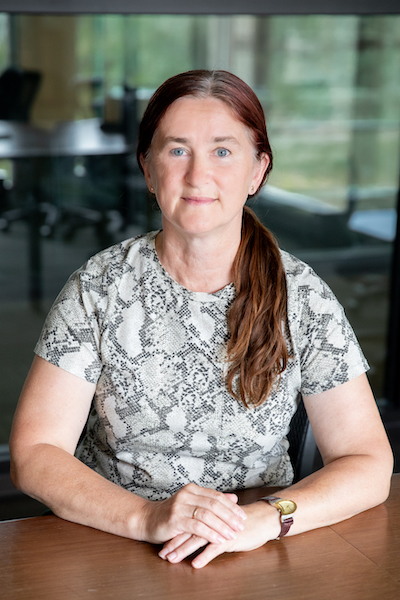The UW–Madison School of Education hosted 21 secondary-level educators from abroad again this fall as part of the Fulbright Teaching Excellence and Achievement (Fulbright TEA) program, which is funded by the U.S. Department of State and administered by IREX.
These teachers came to Madison from 17 different countries across Eastern Europe and Central Asia. They arrived in Madison on Sept. 13, and left town on Oct. 30 for a three-day conference in Washington, D.C., before heading home.
While spending time on campus and around the Madison area, the visiting educators took part in an academic program focused on media literacy, technology, contemporary issues in education, and language pedagogy.
The program included a field experience component at either Monona Grove High School or Verona Area High School. The group also enjoyed some fun activities, like touring the Wisconsin State Capitol and checking out the Dane County Farmers’ Market, taking in a Badgers football game, visiting Chicago, and attending the School of Education’s Homecoming Tailgate event Oct. 7 at Union South.

Before departing, several of the visiting teachers shared their thoughts with the School of Education about their time via a Q&A. Following is what Snieguole Vysniauskiene, who is from Lithuania, shared about her experience.
Why did you apply for the Fulbright Teaching Excellence and Achievement Program? I applied to this program because I am interested in media literacy. Also, I wanted to visit the USA as a teacher, to know more about the educational system here and compare it with schools in my country.
Overall, how would you describe your experience? Really, my experience here exceeded my expectations! I attended lectures at the University of Wisconsin–Madison and obtained new skills. I could share my experience here with other teachers from 17 countries! Also, I visited Monona Grove High School, observed lessons, and presented about my country.
Is there a particular highlight that stands out to you from this program and your time in Madison? The participants of the program were involved in the educational and cultural events: we attended university lectures, enjoyed a football match, and traveled to Chicago and Washington, D.C. I had a wonderful opportunity to grow professionally and enjoy my life.
What is one thing you learned during your time in Madison that you hope to take back home and be able to implement it in your classroom and country? I will include a Socratic seminar method in my lessons, try to create podcasts with my students, and share my experience with my colleagues.
Similarly, what do you hope those on the UW–Madison campus and in the surrounding communities have learned from you? I think more people will know about my country here, because I took an active part in group discussions with university students and had a cultural lesson at Monona Grove High school.
What did you know about Wisconsin and the United States before coming to Madison? And how, if at all, have your perceptions changed about this state or the U.S.? I visited the USA twice, but this is my first professional visit to Wisconsin. I had more information about the biggest cities, but Madison was a new place to find on the map. The Capitol and very tolerant city people made the biggest impression on me.
Is there anything else you’d like to share about yourself or this experience? I want to thank our program guides Jamie Welling and Christina Eddington for taking care of us and all Fulbright teachers for sharing their experience and friendly atmosphere here in Madison.
Note: This story was funded in part by a grant from the United States Department of State. The opinions, findings and conclusions stated herein are those of the author and do not necessarily reflect those of the United States Department of State.